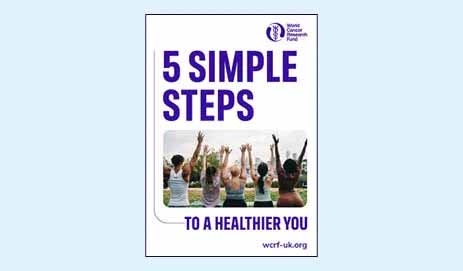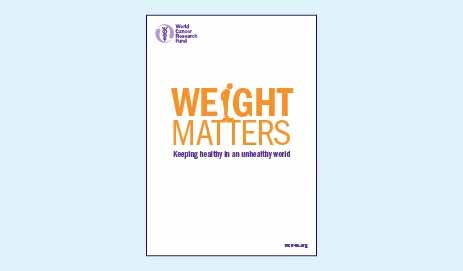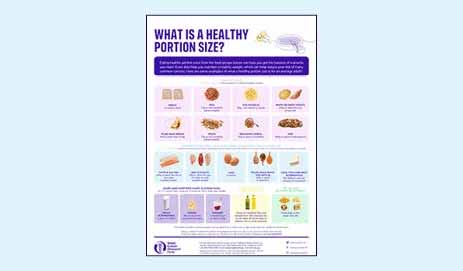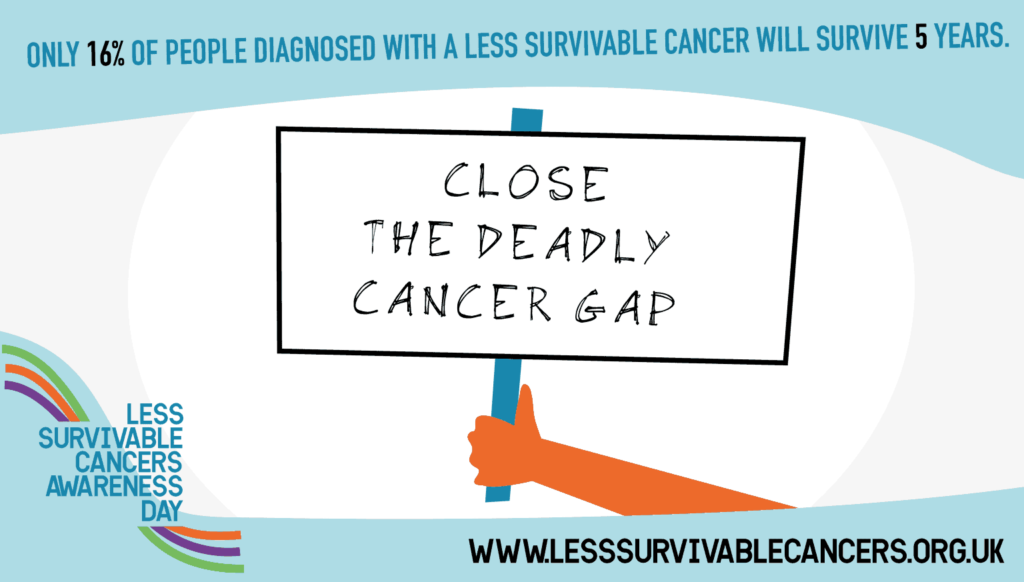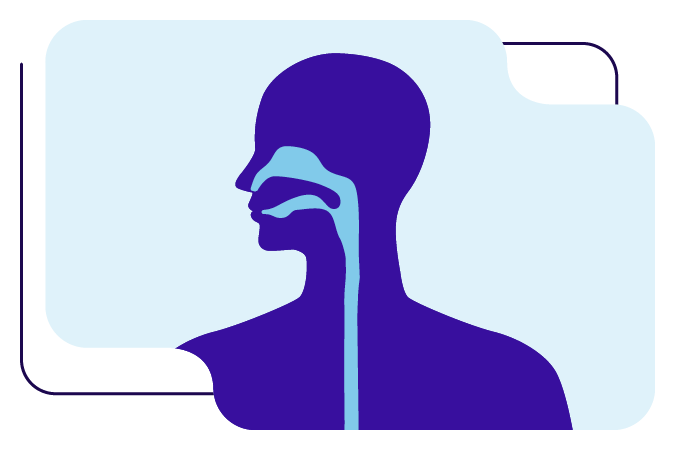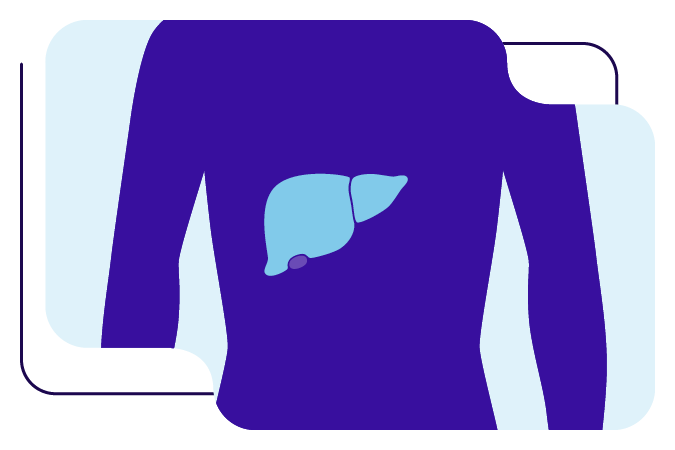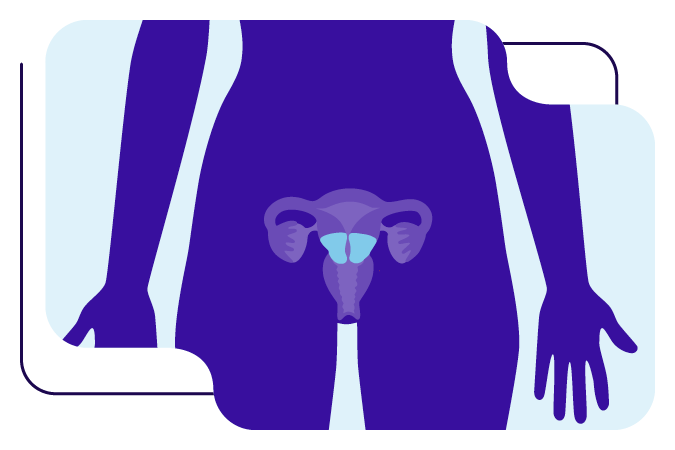Pancreatic cancer
What is pancreatic cancer? Find out how common it is, the causes, and expert advice on how to reduce your risk.
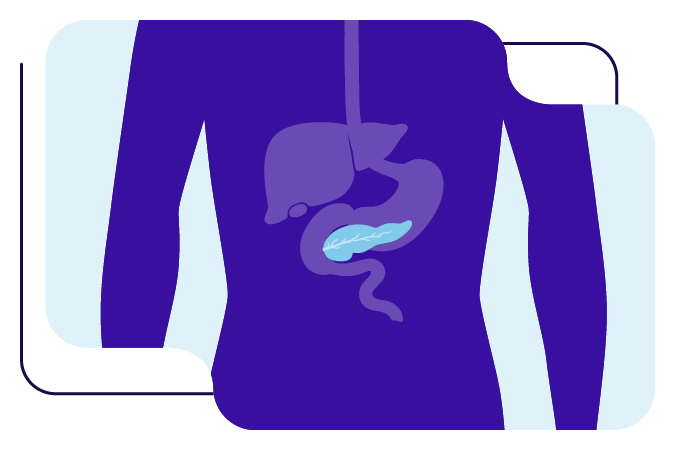
On this page
What is pancreatic cancer?
The pancreas is a gland and is about 15cm long. It’s found behind your stomach and in front of your spine. It has a head, a middle section (called the body), and a narrow end (called the tail).
The pancreas has 2 main roles in your body. It produces:
- digestive enzymes that help to digest (break down) food
- hormones, such as insulin and glucagon, that help to control blood sugar levels
These hormones help your body use and store the energy it gets from food.
Your pancreas has 2 main types of cells. Exocrine cells produce digestive enzymes that are secreted into the small intestine. Endocrine cells produce hormones.
Pancreatic cancer develops when a change in the cells of the pancreas causes them to grow uncontrollably. Most pancreatic cancers start in exocrine cells.
How common is pancreatic cancer?
Pancreatic cancer is the 8th most common cancer in the UK (2021 data), and the 12th most common in the world (2022 data).
Men
Pancreatic cancer is the 10th most common cancer in men in the UK, and the 11th most common in men globally.
Women
Pancreatic cancer is the 8th most common cancer in women in the UK, and the 11th most common in women globally.
| Region | Cases | Year |
|---|---|---|
| UK | 11,455 | 2021 |
| World | 510,992 | 2022 |
What are the signs and symptoms of pancreatic cancer?
Pancreatic cancer may not have any symptoms, or they may be hard to spot.
Symptoms can include:
- the whites of your eyes or your skin turn yellow (jaundice)
- itchy skin
- darker pee and paler poo than usual
- loss of appetite or losing weight without trying to
- feeling tired or having no energy
- a high temperature, or feeling hot or shivery
Find more information on pancreatic cancer symptoms on the NHS website.
Help for you
Our free health guides and cookbooks empower people to reduce their risk of getting cancer. We also help those with a diagnosis cope with treatment, live longer, and enjoy a better quality of life.
Order yours today!
What causes pancreatic cancer?
There are many different things that affect your risk of pancreatic cancer.
Evidence for what can cause pancreatic cancer comes from large population studies (called epidemiology) and biological studies (where scientists look at cells in a laboratory).
If the risk factors below affect you, this doesn’t necessarily mean that you will develop pancreatic cancer.
Weight
Living with overweight or obesity increases the risk of pancreatic cancer.
Smoking
The risk of developing pancreatic cancer is higher in smokers. About 25 per cent (a quarter) of pancreatic cancer cases are caused by smoking.
Family history
A family history increases the risk of pancreatic cancer, particularly if more than 1 family member has developed this cancer.
However, more than 90% of cases are not related to family history.
Diabetes
Some medical conditions, such as diabetes, can increase the risk of pancreatic cancer.
Height
Being tall increases the risk of pancreatic cancer.
Age
Older people are more at risk of developing pancreatic cancer, which mostly affects people aged 50 or older.
Other risk factors
Our Expert Panel of scientists has also looked at other things that may be linked with the risk of pancreatic cancer. The evidence for the risk factors listed below is limited, and we do not recommend that you change your behaviour only on the basis of these risk factors.
There is some evidence that:
- red meat may increase the risk of pancreatic cancer.
- processed meat may increase the risk of pancreatic cancer.
- food containing saturated fatty acids may increase the risk of pancreatic cancer.
- alcohol may increase the risk of pancreatic cancer.
- fructose may increase the risk of pancreatic cancer.
For scientists: full references, pathogenesis and a summary of the mechanisms underpinning our findings on how to prevent pancreatic cancer can be found in our 2018 pancreatic cancer report.
Reduce your risk of pancreatic cancer
Following our Cancer Prevention Recommendations reduces your risk of pancreatic cancer. If you have been diagnosed with cancer, following our Recommendations can reduce the risk of cancer returning.
Be a healthy weight
Reaching – and staying at – a healthy weight can reduce your risk of pancreatic cancer, many other cancers, and other diseases.
But it’s not easy! Eating a good diet and moving more are great places to start.
Visit our weight and cancer page for more information about how our weight affects our risk of developing cancer, and support to help you stay a healthy weight.
> Weight matters: get a free guide with realistic tips and advice from experts
Don’t smoke
You can reduce your risk of pancreatic cancer by not smoking. If you do smoke, giving up smoking will reduce your risk.
In the UK, the NHS stop smoking service can help you quit.

Pancreatic cancer survival
Our Living with cancer section can help if you are living with pancreatic cancer.
